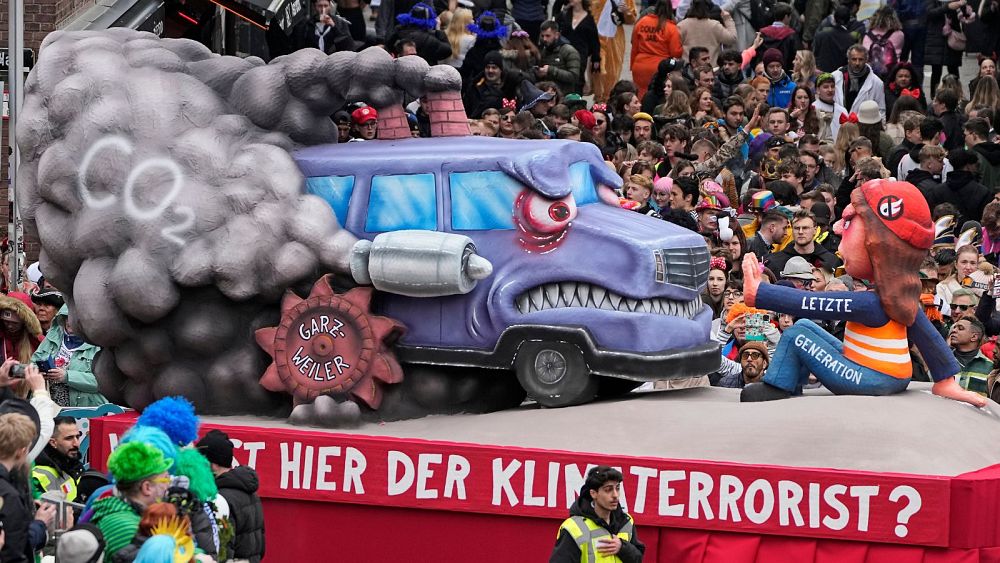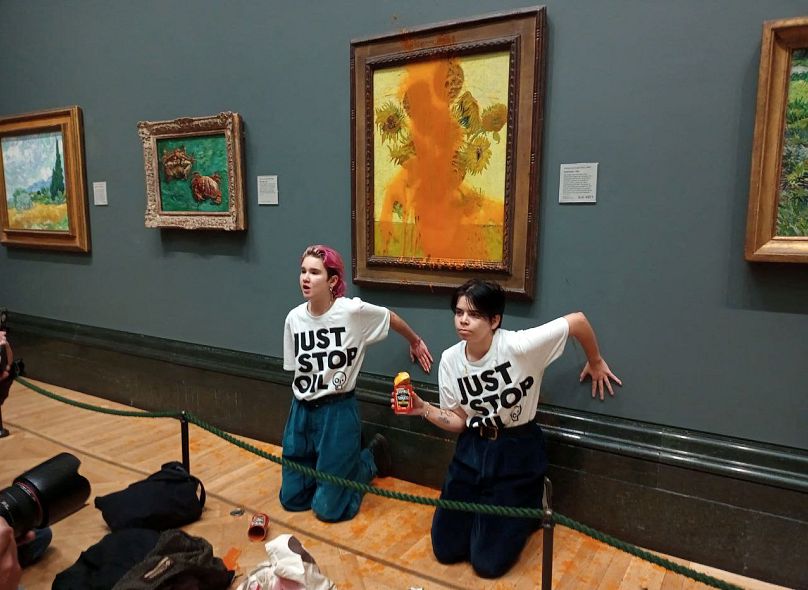
When you see climate activists blocking a road, do you see a group of passionate people pressuring governments to protect our futures, or a bunch of eco-zealots getting in the way?
Given that most of us encounter these actions second-hand, it probably depends where you see the news.
A new report from the Institute of Strategic Dialogue (ISD) has looked at what impact your choice of media has. The think tank analysed more than 8,000 climate-related news stories in English, French and German media outlets to see how they’re framing climate action.
It found that 35 per cent of news headlines published in ‘alternative’ outlets and 8 per cent in mainstream publications promoted at least one ‘anti-climate activism’ narrative. Alternative sites are those that describe themselves as being in opposition to mainstream reporting.
‘Climate hysterics’ appeared in a total of 499 headlines, making it the most common narrative that the analysts identified by using keyword-based searches on the online stories. ‘Climate terrorists’ and ‘climate elites’ were the other two narratives they clustered phrases under.
But a whole glossary of derogatory terms are being deployed, from “climate crazies” to “Klima-Kleber” (climate gluers) and “militants écolo-pastèques” (watermelon environmentalists, implying protesters are green on the outside and red, aka politically left, inside).
Sara Bundtzen
Research and Policy Analyst, ISD Germany
“The use of undifferentiated or defamatory rhetoric,” writes report author and ISD analyst Sara Bundtzen “has been a key part of the climate delayist strategy that targets the legitimacy of any activism or advocacy.
“Such tactics do not need to address the science or even specific solutions or technologies. Instead, they portray those demanding urgent and decisive action as mentally unstable, quasi-religious fanatics, security threats or part of nefarious conspiracies.”
Though some of these portrayals can sound laughably unhinged, there are of course real-world consequences in the way climate coverage feeds public debate.
“When amplified across the media ecosystem, [incendiary coverage] only serves to interfere with public debate on key policy issues like the pace and scale of net zero transitions,” says Bundtzen.
So whatever your media appetite, here are the key trends to be aware of.
‘Climate hysterics’ ridicule rose as actions got artier

ISD found ‘climate hysterics’ to be the most prominent anti-climate activism narrative among the 8,698 media stories it looked at, all published between 1 November and 15 December 2022.
Mocking language of this kind included descriptions of “idiots”, “freaks” or “nuts”, with right-leaning UK tabloid The Sun calling Just Stop Oil protestors a “doomsday cult.”
When climate activists focused on museums and art galleries towards the end of 2022 — remember the soup on Sunflowers? — right-wing outlets upped their ‘hysterical’ denunciations.
Alternative outlet InfoWars ran with ‘More Idiots Allowed to Damage Priceless Art…’ in its coverage of ‘Ultima Generazione’ (Last Generation) throwing flour on an Andy Warhol work in Milan.
In German media, the phenomenon of activists gluing themselves to streets or objects has spawned the term ‘Klima-Kleber’ (climate gluers), mentioned more than 200 times in both mainstream and alternative outlets. The latter took it one step further with “Klima-Kleber-Trottel” (climate gluer fools) and “Klima-Kröten” (climate toads).
Meanwhile French-language mainstream outlet BFMTV referred to the protests as “une explosion de crétins” (explosion of morons).
Why is ‘climate terrorism’ more common in German outlets?
Framing activists as ‘climate terrorists’ was found to be particularly pronounced in German outlets.
Out of a total 418 headlines related to this narrative across all languages, the majority (about 80 per cent) were published by German language sites.
In fact ‘Klimaterroristen’ was so widely used in 2022 that German linguists and journalists voted the expression Germany’s ‘Unwort’ (non-word) of the year.
There’s a specific context for this, Bundtzen explains, as comparisons were made with the former left-wing extremist group Rote Armee Fraktion (RAF), which conducted deadly terrorist attacks throughout the 1970s and 80s in Germany.
The accidental death of a cyclist in Berlin last year was also used to vilify protesters, after the traffic jam caused by a road blockade delayed the arrival of a rescue vehicle at the scene nearby.
Bundtzen traces the way the ‘extremism’ framing seeped into French and English language outlets, with UK tabloid Daily Mail suggesting activists would cause “countless deaths”.
Stories calling for tougher punishments for climate activists followed.
‘Climate elites’ narrative mainly pushed by English alt-outlets
‘Climate elites’ was the third key anti-climate activist narrative that ISD tracked across the media. In total, 175 headlines linked climate activism to the notion of ‘hypocritical global elites’ trying to force their alleged ‘woke-ness’ on citizens.
The analysts found that English-language alternative outlets carried the majority (about 70 per cent) of these types of stories. Headlines proclaiming the launch of “climate lockdowns” fell under this grouping, as well as claims that Greta Thunberg seeks the “annihilation of the West.”
French outlets tended to take a more political framing — throwing out the watermelon critique to suggest environmentalists are secretly advancing a socialist agenda.
ISD adds that the remaining 65 per cent of headlines in alternative outlets still largely discredited the need for climate action.
